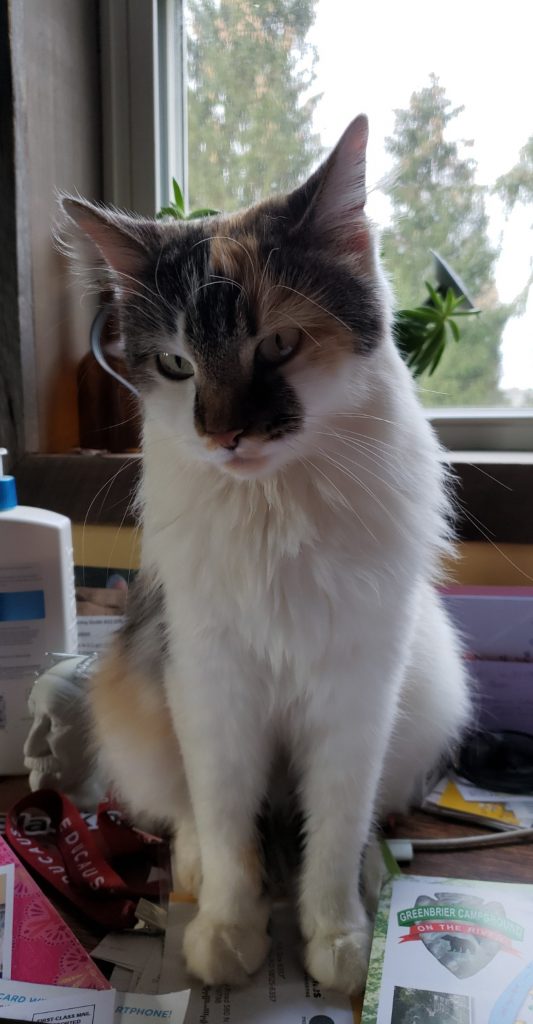When my cat got out and ran off, I was worried, as any pet parent would be. There’s a lot of dangers out there for an indoor cat. Something that assuaged my fears somewhat was her microchip.
I made sure to get her microchipped when she was spayed, and registered it immediately. My vet recommended waiting until she was under anesthesia for her spay before we chipped her as the needle used in microchipping is rather large. Microchips are placed between the shoulder blades, and are about the size of a grain of rice. You shouldn’t be able to feel the chip.
The microchip doesn’t store your information, it just contains a number. When your pet is chipped, you should receive information about the brand used and how to register the chip. Registering my cat was as easy as heading online and entering my contact information. This added her to a national database. If she were to be found and scanned, my information would be available to whoever found her.

If you adopt your pet from a shelter, they usually are already microchipped. However, they don’t automatically have your contact information added. You should receive information on how to register your pet’s microchip when you adopt them.
Microchips are not GPS trackers. While those do exist for your pet, they usually attach to a collar and can be lost. Even if you do plan on using a GPS tracker for your pet, a microchip would still be a good idea.
According to a study done by the American Veterinary Medical Association, microchipped dogs are 2.1 times more likely and cats are 21.4 times more likely to return home from a shelter than those without chips. Most shelters do a scan on intake, and when a microchip is found, are able to contact the owner and get the lost pet home safely.
While microchips are a good way to help get your pet home safely, collar tags with the owners contact information are still the quickest way a lost pet gets home.
Microchips provide a secure and permanent identification for your pet. They’re easy to register, and only cost around $45.
If you have more questions or concerns, just ask your vet! Here’s a good article on how to get the most out of your vet visits.

